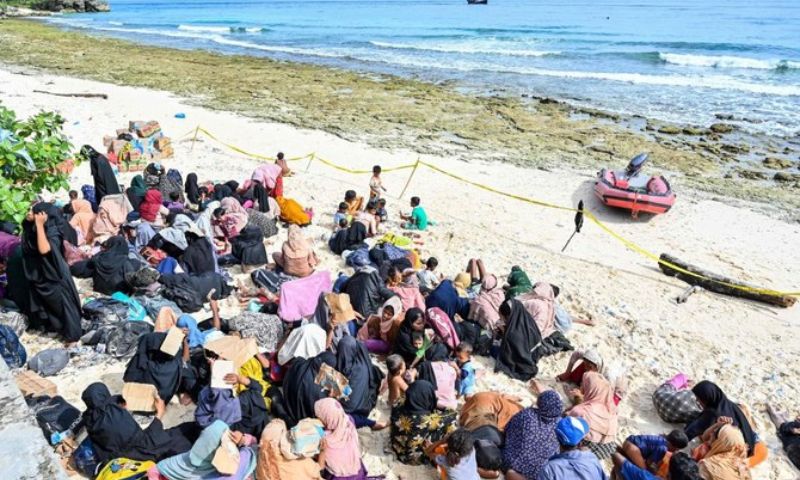ACEH, Indonesia: In a desperate bid for safety, Rohingya refugees, escaping the growing threats of kidnapping and violence in the camps around Cox’s Bazar, Bangladesh, have embarked on dangerous sea journeys to reach Indonesia.
This mass exodus, the largest since 2015, reflects the escalating brutality within the overcrowded camps, where criminal gangs regularly abduct and torture residents for ransom.
Nasser Jabbar, a 27-year-old Rohingya, shared his harrowing experience of being kidnapped by a group that demanded a hefty ransom. “We lost the land and we lost the water,” he said, emphasizing the environmental challenges that led to his displacement. The Rohingya, initially fleeing persecution in Myanmar, now face a new wave of danger as criminal gangs and alleged affiliates of Islamist armed groups instill fear in the Bangladesh refugee camps.
The plight of Rohingya refugees is exacerbated by a lack of security, with the Bangladesh defence ministry identifying at least 11 armed groups operating in the camps. The government’s apparent indifference to the refugees’ safety has prompted some to seek alternative routes, opting for treacherous sea voyages to Indonesia, a country not signatory to the UN Refugee Convention.
The journey to Indonesia, spanning over 1,800 kilometers, involves crowded, rickety boats, highlighting the refugees’ desperation. Despite facing challenges, Indonesia remains a more viable option than the increasingly dangerous conditions in the Bangladesh camps. Human Rights Watch reported criminal gangs and armed groups causing terror in the camps, engaging in activities like drug smuggling and human trafficking.
Indonesia’s role in providing refuge to Rohingya refugees is complicated by its non-signatory status to the UN Refugee Convention. However, with neighboring countries closing their doors, Rohingya refugees have limited options. Over half a dozen boats have arrived in Indonesia’s Aceh Province since November 14, marking the largest influx in six years.
The worsening conditions in the Bangladesh camps, including food shortages, prompt entire families to seek refuge elsewhere, changing the profile of those fleeing. Families, not just young men, are now leaving in search of safety. Despite the challenges in Indonesia, refugees like Nasser Jabbar hope for a better life for their children, far from the threats that loom large in the Bangladesh camps.
As the Rohingya continue their perilous journeys, the international community faces the challenge of addressing the root causes of their displacement, including environmental changes, conflict, and persecution, and ensuring the safety and well-being of those seeking refuge.























